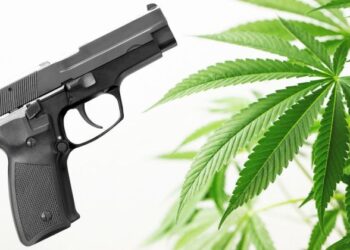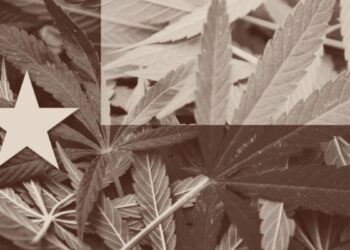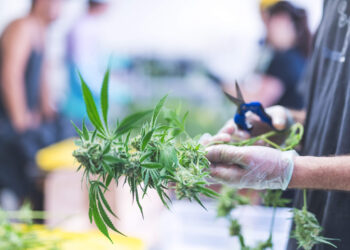
Marijuana reform legislation continues to advance in several states. This week’s update highlights legislative developments in Alaska, Arizona, California, Delaware, Florida, Georgia, Hawaii, Illinois, Kentucky, Maine, Maryland, Minnesota, New Hampshire, New Mexico, New York, Oregon, South Dakota, Texas, Utah, and Washington.
LEGALIZATION
Delaware
Update: HB1 passed the House 28 to 13. It has now been assigned to the Senate Health & Social Services Committee.
House Bill 1 removes all penalties for possession of a personal use quantity of cannabis, except for those who are under 21 years of age. Possession of greater amounts and/or public consumption would remain unclassified misdemeanors. A personal use quantity is defined in the legislation as one ounce or less of leaf cannabis, 12 grams or less of concentrated cannabis, or cannabis products containing 750 milligrams or less of delta-9-tetrahydrocannabinol (THC).
Send a message to support this effort.
Hawaii
UPDATE: SB 669 passed the Senate and now heads to the House.
Senate Bill 669 legalizes the personal cultivation and use of small amounts of cannabis.
Send a message to support this effort.
Maryland
Update: HB 556 was amended and passed the House Committee on Economic Matters. SB 516 is scheduled for a hearing in the Senate Finance Committee on 3/9/23.
House Bill 556 and Senate Bill 516 regulate cannabis sales for adults 21 and older by allowing select cannabis businesses to serve both medical patients and adults. The bills create an avenue for on-site consumption licenses where consumers over 21 can purchase and consume cannabis in a social setting. Additionally, the legislation institutes certain parental and personal protections for medical and adult-use consumers.
The bills also increase the amount of cannabis that registered medical patients may possess up to four ounces of flowers, 36 grams of THC-infused products, and up to four plants for home cultivation.
Under state law, patients are not currently allowed to cultivate plants in their homes.
Send a message in support of this effort
Minnesota
UPDATE: HF 100 has passed eleven House committees. SF 73 has passed ten Senate committees. Each bill will need to pass twelve committees in their respective chambers before receiving a floor vote.
HF 100/SF73 allows adults 21 and older to purchase up to two ounces of cannabis and to home-cultivate up to eight plants ( four of which may be mature). In addition to creating a system of licensed, private retail cannabis businesses, municipalities, and counties could own and operate government dispensaries. Those with prior marijuana convictions would have their records automatically expunged. The legislation also allows for on-site consumption lounges and cannabis delivery services. It also contains language banning the sale of unregulated synthetic cannabinoids, consistent with Board of Pharmacy rules put into place last year.
Send a message to support this effort.
New Hampshire
UPDATE: HB 639 was amended and passed by the House Commerce and Consumer Affairs Committee. Members of the House Ways & Means Committee will now consider the bill. If approved, it will go to the floor for a vote. HB 360 is expected to be voted on by 3/16/23. HB 344 has been retained by the committee, meaning that no further action will be taken this year.
As amended, HB 639 allows adults 21 and older to purchase, possess and gift up to four ounces of cannabis. The newly renamed Liquor and Cannabis Commission would be responsible for regulating the marijuana market and issuing business licenses. Sales to adults would be subjected to the 8.5% Meals and Rooms Tax.
HB 344 permits adults to possess up to 3/4 of an ounce of cannabis, 5 grams of hashish, and certain cannabis-infused products. It legalizes home cultivation, of 6 plants, of which 3 could be mature.
House Bill 360 legalizes the possession and use of cannabis for persons over the age of 21. If passed, this bill would strike most all current references to cannabis (marijuana) in the state’s Controlled Drugs Act, amending the statutes to provide for safe and legal possession and consumption for those over the age of 21.
Send a message to support this effort.
DECRIMINALIZATION
Texas
Update: HB 218 unanimously passed the House Criminal Jurisprudence Committee.
HB 218 reduces the penalties for possession of one oz or less of cannabis flower or cannabis concentrates while also instructing officers to no longer make arrests for the possession of personal use amounts of either marijuana or related paraphernalia. Additionally, it facilitates a process for the expungement of past marijuana charges.
Send a message to support this effort.
MEDICAL ACCESS
Arizona
UPDATE: SB 1466 has passed the Senate 24 to 6.
Senate Bill 1466 includes Post-Traumatic Stress Disorder, which commonly affects veterans, and Autism Spectrum Disorder as qualifying medical conditions. It also reduces the cost of applying for and receiving a medical access registration and makes doing so free to veterans.
Send a message to support this effort.
Georgia
Senate Bill 270 authorizes and regulates the issuance of licenses for the production and distribution of low-THC cannabis products. It also adds ulcerative colitis to the list of qualifying conditions for which qualifying patients may receive authorization to access these products.
Under current state law, Georgians are allowed to possess low-THC cannabis extracts but there are yet to be any open dispensaries to provide a legal source for CBD/THC products.
Send a message in support of this effort.
Oregon
House Bill 3567 adds palliative cans and comprehensive pain management to the list of qualifying conditions for the use of medical cannabis while instructing entities that provide that care to allow for the use of medical cannabis products. It further protects nurses from termination for the discussion of medical cannabis with patients.
Send a message to support of this effort.
South Dakota
UPDATE: Differing versions of SD1 have passed both chambers. The bill will go to a conference committee to concur on any changes before it goes to the Governor’s desk.
SD1 authorizes medical cannabis access to patients with the following qualifying conditions: AIDS/HIV, ALS, Multiple sclerosis, Cancer or its treatment, if associated with severe or chronic pain, nausea or severe vomiting, cachexia or severe wasting, Crohn’s disease, Epilepsy, and seizures, or Post-traumatic stress disorder. However, it limits patients and other third parties from petitioning for the addition of future qualifying conditions.
Send the Governor a message to support this effort.
ADDITIONAL
Alaska
UPDATE: HB28 is scheduled for a hearing in the House Judiciary Committee on 3/8/23.
House Bill 28 reduces barriers to employment for people who have been convicted of low-level marijuana possession crimes that would be legal on January 1, 2024.” If passed, this bill would prohibit the release of conviction records concerning low-level marijuana possession charges by the Alaska Court System –or any other agency. The bill would also (to the largest extent possible) purge records of these convictions from publicly accessible records.
Send a message to support this effort.
California
Update: SB 285 is scheduled for a hearing in the Senate Business, Professions, and Economic Development Committee on 4/17/23.
SB 285 authorizes local jurisdictions to allow for the preparation or sale of non-cannabis food or beverage products by a licensed retailer or microbusiness in the area where the consumption of cannabis is allowed.
Send a message to support this effort.
UPDATE: SB 51 is scheduled for a hearing in the Senate Business, Professions, and Economic Development Committee on 3/27/23.
SB 51 authorizes the Department of Cannabis Control (DCC) to issue a provisional license for local cannabis equity applicants for retail activities for up to five years if the applicant meets the requirements of the Department.
Send a message to support this effort.
Florida
SB 972 and HB 1065 seek to protect the rights of public employees to use medical cannabis. The bill prohibits public employers from “taking adverse action,” i.e. refusing to hire, firing, or discriminating against qualified medical cannabis patients, with the additional caveat that all possible attempts at mitigating the situation must be made, should the employee’s use of medical cannabis pose a safety issue.
Send a Message to support this effort.
Illinois
UPDATE: HB 1462 is scheduled for a hearing in the House Judiciary – Criminal Committee on 3/7/23. It is pending a vote.
House Bill 1462 creates regulations for the expungement of records relating to DUI offenses, misdemeanors, and past convictions of marijuana possession.
Send a message to support this effort.
UPDATE: HB 1205 is scheduled for a hearing in the House Executive Committee on 3/8/23. SB 125 is scheduled for a hearing in the Senate Special Committee on Criminal Law and Public Safety on 3/9/23.
House Bill 1205 prohibits police from citing the odor of marijuana alone as probable cause for searching a home, vehicle, or other private property for those over the age of 21.
Senate Bill 125 prohibits the odor of burnt or raw cannabis emanating from a motor vehicle from being considered probable cause for a search.
Send a message to support this effort.
Maine
UPDATE: LD 839 is scheduled for a hearing in the House Committee on Veterans and Legal Affairs on 3/13/23.
Legislative Document 839 permits cannabis businesses to establish on-premise cannabis consumption spots in a designated area separate from the location/room where cannabis is purchased.
Send a message to support this effort.
Maryland
UPDATE: HB 1172 is scheduled for a hearing in the House Health and Government Operations Committee on 3/7/23. It is pending a vote.
Senate Bill 671 and House Bill 1172 allow out-of-state medical cannabis patients to access their medicine while visiting Maryland if they have a valid medical cannabis card from another state.
Send a message to support this effort.
Update: HB 232 passed the House by 134 to 1. SB 653 is scheduled for a hearing in the Senate Judicial Proceedings Committee on 3/15/23.
House Bill 232 amends the state’s child neglect laws in such a way that excludes the use of cannabis in certain instances.
Senate Bill 653 seeks to protect parents who legally use cannabis from prosecution for child neglect. The bill codifies into law that “neglect does not include the use of cannabis by a parent or individual who has permanent or temporary care or custody or responsibility supervision of a child.”
Send a message to support this effort.
New Mexico
UPDATE: HB 314 passed out of the House and heads to the Senate.
House Bill 314 expunges the records of anyone charged with an offense involving low-level possession prior to the adoption of the Cannabis Regulation Act that had been in effect at the time of the offense.
Send a message to support this effort.
New York
Senate Bill 5293 prohibits employers from mandating future hires take a marijuana drug screening test as a condition of employment. There are some exceptions for those that work in police/law enforcement jobs, public transportation, safety jobs, jobs requiring the employee to have a commercial driver’s license, and child or healthcare jobs to be protected under this act.
Send a message to support this effort.
Oregon
House Bill 3428 prohibits public healthcare employers from denying employment or taking adverse employment action against an individual based on a positive drug test for cannabis.
The bill provides circumstances where a public health care employer may take adverse employment action against an individual if reasonably suspected to be impaired at work. Additionally, this bill requires the state to conduct studies related to marijuana use and the detection of impairment.
Send a message in support of this effort.
Utah
UPDATE: SB 293 has passed the House and Senate and now heads to the Governor’s desk.
Senate Bill 293 seeks to revise provisions related to the expungement of arrest and conviction records in the state of Utah.
This bill decreases the waiting period for an individual to submit an appeal for expungement, varying based upon the offense and subsequent ruling in addition to providing that those convicted of cannabis possession offenses qualify for expungement if they can establish that the amount of cannabis in question was within the current parameters of possession limits under the Utah medical cannabis program and they obtain a retroactive certification of affliction with a qualifying condition at the time of the offense.
Send a message to the Governor in support of this effort.
Washington
Update: HB 1563 passed the House 63 to 32.
House Bill 1563 provides protections for medical cannabis users in Washington. If passed, qualifying patients who hold the valid authorization but who have not been entered into the medical cannabis authorization database and have not been issued a recognition card will be protected from arrest.
Send a message to support this effort.
BILLS NORML OPPOSES
Kentucky
Senate Bill 228 imposes an arbitrary 5 nanogram THC per se limit for drivers. NORML opposes such limits because the presence of THC in the blood is not a consistent indicator of either recent cannabis use or impairment.
Send a message in opposition to this effort.
New York
Assembly Bill A4934 bans the sale and delivery of THC products in certain candy forms, such as chocolates and gummies.
Send a message in opposition to this effort.
South Dakota
Update: HB 1053 and SB3 have both passed the House and Senate.
HB1053 and SB3 seek to specifically exclude pregnant and breastfeeding women from being issued a medical cannabis card.
Send a message to the Governor opposing this effort.











